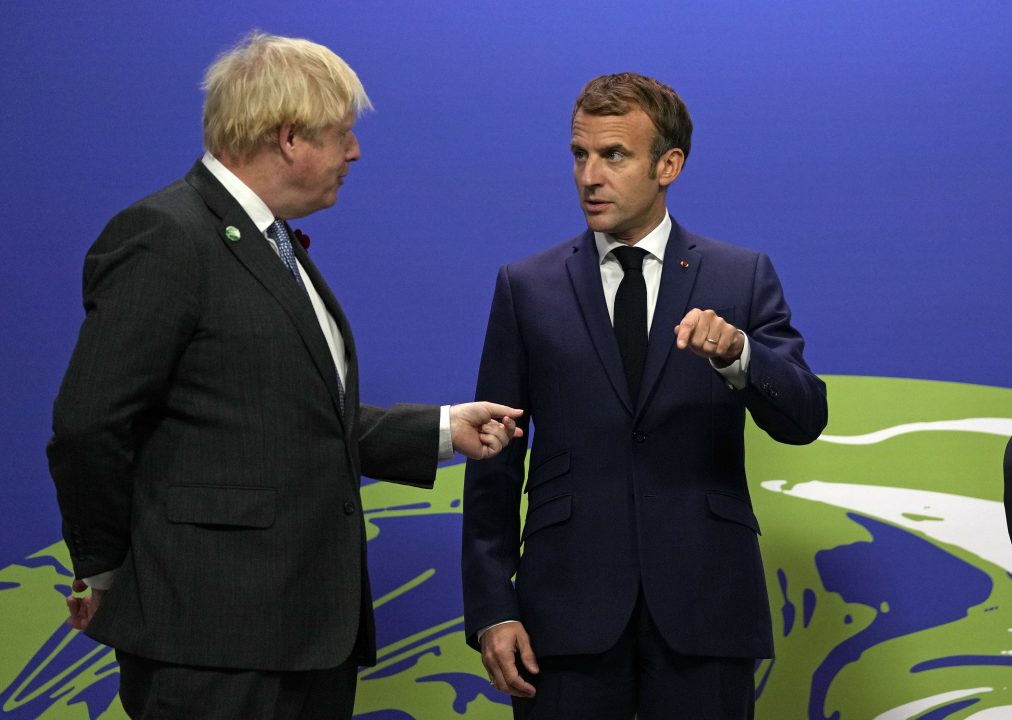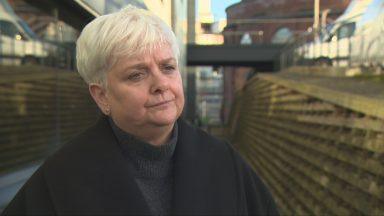France is set to take punitive action on Tuesday as the UK refused to “roll over” in a dispute over post-Brexit licences to fish in British waters.
Downing Street said it had “robust” contingency plans in place if Emmanuel Macron’s government carries out threats to disrupt trade from midnight.
Foreign secretary Liz Truss said the UK would take legal action under the UK-EU Brexit trade deal, while a tit-for-tat retaliation to French action has not been ruled out.
Ministers in Paris have warned they could block British boats from landing their catches in French ports and tighten customs checks in protest at what they claim is a refusal by the UK authorities to grant licences to French boats.
But the UK insisted it would only grant licences to boats which meet the criteria set out in the Brexit deal.
Emmanuel Macron and Boris Johnson met briefly as the French president arrived in Glasgow for the COP26 climate summit.
And officials from the two nations were involved in talks convened by the European Commission in Brussels, although UK sources played down the prospect of any breakthrough.
The UK has granted licences to 98% of EU vessels which have requested permission to operate in British waters.
But the dispute centres on access for small boats, under 12-metres, wishing to fish in the UK six-to-12-nautical-mile zone.
The government in Paris was angry that the UK originally granted only 12 licences out of 47 bids for smaller vessels, a figure which has now risen to 18.
Only boats which can demonstrate they have fished in UK waters for one day in each of the years between 2012 and 2016 qualify for a licence.
The Elysee Palace said that without movement from the UK Government the retaliatory measures would come into force at midnight, the French news agency AFP reported.
A No 10 spokesman told reporters: “As you would expect, we have robust contingency plans in place. I’m not going to get into the detail of them here.
“It is the French that made these threats and we are continuing to call for them to step back from those threats.”
Truss told BBC Radio 4’s Today programme: “Those threats are completely unwarranted. We allocated the fishing licences completely in line with what is in the trade agreement with the EU and the French need to withdraw those threats.
“Otherwise we will use the dispute resolution mechanism in the EU deal to take action.”
She added: “We are simply not going to roll over in the face of these threats.”
Truss suggested Mr Macron’s hardline stance was motivated by domestic political concerns.
She told Sky News: “You might say there’s a French election coming up.”
The foreign secretary said the French had made “unreasonable threats” and the UK would take legal action “if the French don’t back down”.
“This issue needs to be resolved in the next 48 hours,” she added on Monday morning.
As well as the legal dispute resolution mechanism, the Government is considering other actions including “rigorous” enforcement processes and checks on EU fishing activity in UK territorial waters, measures it said would be consistent with the Trade and Co-operation Agreement.
Jersey, which has also been threatened with action by France, has issued 49 temporary licences and 113 permanent licences to French vessels.
Tony Porritt, who has owned the shellfish exporter Aqua-Mar Fisheries on the island for more than 50 years, said the situation was frustrating.
Speaking to the PA news agency in the Jersey capital, St Helier, he said: “I think we are just being used as a pawn in the whole political game between France and the UK.”
The fishing row adds to the tensions around UK-European Union relations, with the dispute over the Brexit deal’s Northern Ireland Protocol also causing a diplomatic row with Brussels.
European Commission vice-president Mar Sefcovic, writing in the Daily Telegraph, said he feared Britain was embarking on a “path of confrontation” in its refusal to back down on its stance that the European Court of Justice should not have an arbitration role in the protocol.
He said the EU had “gone the extra mile” with its own reform proposals but that the bloc had “limits”.
But Brexit minister Lord Frost, writing for the Policy Exchange think tank, said the EU had “destroyed cross-community consent” with an “overly strict” enforcement of the Northern Ireland Protocol.
He condemned the European Union for behaving “without regard to the huge political, economic and identity sensitivities” in Northern Ireland.
The protocol is the mechanism to avoid a hard border with Ireland by effectively keeping Northern Ireland within the EU’s single market for goods, an arrangement which has led to checks on products crossing the Irish Sea from Great Britain.
Follow STV News on WhatsApp
Scan the QR code on your mobile device for all the latest news from around the country


 PA Ready
PA Ready


























